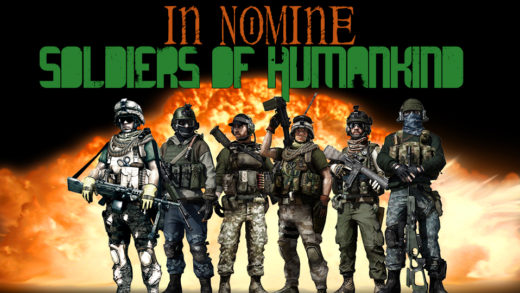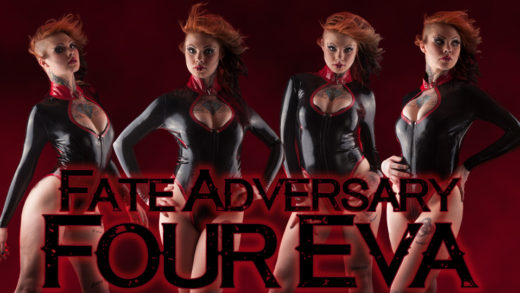I recently tweeted, “Between locking ancestries behind achievement points and making scenarios non-repeatable to players (not their characters), I’m about to throw in the towel with Pathfinder/Starfinder Society. I’ve never seen a publisher so determined to not allow players to play.”
The idea of organized play is a fine goal, but Paizo’s execution is a clear fumble, souring my taste for their games as a whole. While this opinion piece is primarily focused on Pathfinder 2e Society play, it touches on all organized play games.

A Personal History
I played Dungeons & Dragons 2nd edition in the early 90’s amongst friends and schoolmates. By the mid-90’s, my gaming interests had strayed far from D&D and while I was vaguely aware of the RPGA (TSR’s offshoot organization to promote their game), it wasn’t something that required my attention.
Within the Knights of the Dinner Table comic’s universe there was a HackMaster organization that allowed players to take their character to other group tables, settle disputes/rule questions, and set up tournaments. Though my friends and I were playing games far removed from what KoDT was lampooning (and HackMaster had yet to be turned into an actual ttrpg property), we all agreed that the idea of such an organization was an interesting one, even if played for laughs in the zine.
It wasn’t until my first trip to GenCon in the early 2000’s that I had my first organized play experience. Shadowrun Missions allowed me to take a character to a few different tables at the convention and beyond, if I were so inclined. I was able to create the character I wanted to play and the only limitation I saw was one of any convention game, that of time. Heavy in-character role-play was put aside in favor of completing the mission; but there was plenty of in-character banter and voices. I walked away with a good feeling about organized play in general.
When I moved to Portland in the tail end of the 2010’s it seemed the best way to find other gamers was to join in on organized play. I did this with the hopes of finding an actual group. I purchased numerous Pathfinder books and created a character. It was here my rocky relationship with organized play, and specifically Paizo’s “Society” play began.
Locked Content
With Pathfinder 1e, some races and classes were locked behind “boons.” These certificates were granted during special events or at the end of specific adventures. There would be limited time periods where one might create their desired character normally locked behind a boon and, so long as they played a single certified session during that time, be grandfathered in to longer-term play.
The goal of this boon system was, ostensibly, to ensure not everyone flocked to the table with characters from whatever new supplement was released. What it ended up doing is ensuring I didn’t purchase whatever new supplement was released because I knew I would not be able to play from it. It was no surprise to me that there was a whole boon trading and selling system; but even despite that, some boons would feel forever locked.
Starfinder Society had a similar boon structure but when I began playing there was only the core book, so nothing was locked to it.
I’m not entirely sure when the boon structure was changed, but when I began playing Pathfinder 2e Society in late 2021, I noticed that these boons were no longer linked to specific events or game occurrences, but purchasable with “achievement points.” While it still prevented players from being able to immediately create the character they wanted with the rulebooks they purchased, it was at least less arbitrary and gatekeeping.
I wanted to create a character with a tiefling ancestry because tieflings are my favorite characters. Unlocking the ancestry would cost 80 achievement points. Playing at convention games would net more points, GMing would unlock the most points, and there were some 1-hour scenarios that would only net a single achievement point. But the average scenario playthrough would take 4-5 hours and garner 4 points. Though my gaming schedule was limited, I had no doubt I could find and play 20 sessions in order to play the character I wanted to play.
Non-Repeatable Scenarios
Things were on schedule. I had a final 6 sessions to play to collect enough points to unlock my coveted tiefling ancestry. I realized I had already played a scenario with one of my characters and mentioned that I’d be switching from my Witch to my Rogue. I was then informed the scenario was “Non-Repeatable.”
It confused me at first. I was switching out a character, why tell me that the scenario was non-repeatable? The Organized Play rules were fairly obtuse about this. I did some research and found that scenarios marked as “Repeatable” could be played multiple times by the same player, not the same character, and that sessions without that flag could not be re-played by the player. I found a list of scenarios and only a small percentage were marked as “Repeatable.”
With this “Non-Repeatable” system, there were adventures I thought would have been really fun to experience with what I planned as my next character, but would not be able to play. Technically I would, but not for rewards (including XP) and it was generally frowned upon by groups.
Again, the reasoning behind this decision was murky. The best I could deduce is to reduce meta-gaming, so any mysteries, puzzles, or traps wouldn’t be sidestepped by the player. This strikes me as exceedingly untrusting to both the players and the Game Masters of these scenarios. It tells me that Paizo thinks the majority of players will always act on player knowledge over character knowledge and the company thinks the GM won’t be able to spot such infractions or call them out.
Rollplay Over Roleplay
Because these scenarios are usually played in time-gated sessions, there’s little to no time for in-depth character roleplay. This is an expectation with any time-gated session. But I noticed with Pathfinder Society, Starfinder Society, and the handful of D&D Adventurer’s League games I played that there’s a much heavier focus on getting it done than any sort of character play. For some, their characters seemed little more than a picture and a stat block. It’s not always by the player’s choice. Sometimes things move so quickly from combat to challenge to combat that there’s no time to inflect anything beyond player-play instead of character-play.
Maybe that’s why Paizo doesn’t trust players to re-play a scenario. I don’t know.
As a side note: There’s also heavy encouragement to min-max one’s character and juice them for every point of advantage to their specific class. One can be called into question about why they didn’t do X with a character or allot their points differently (these things are more obvious to other players when playing online rather than in person). There’s a push to favor those stat blocks rather than character backgrounds and activities.
Moving On
I like the idea of organized play. Some people have odd schedules or gaming times. And especially given the pandemic, it’s become harder to find long-term gaming groups. While I’d prefer a campaign it’s a feels great to create a character and find a session to play and take that character onwards, even if it’s not always with the same players (or their same characters).
I, however, am moving on; at least from Paizo’s brand of organized play. Adieu, Pathfinder Society. I never got to play the character(s) I wanted to play, I wouldn’t have been able to “repeat” the scenarios that would have fit them, and you never really fit my playstyle, anyway.



Recent Comments